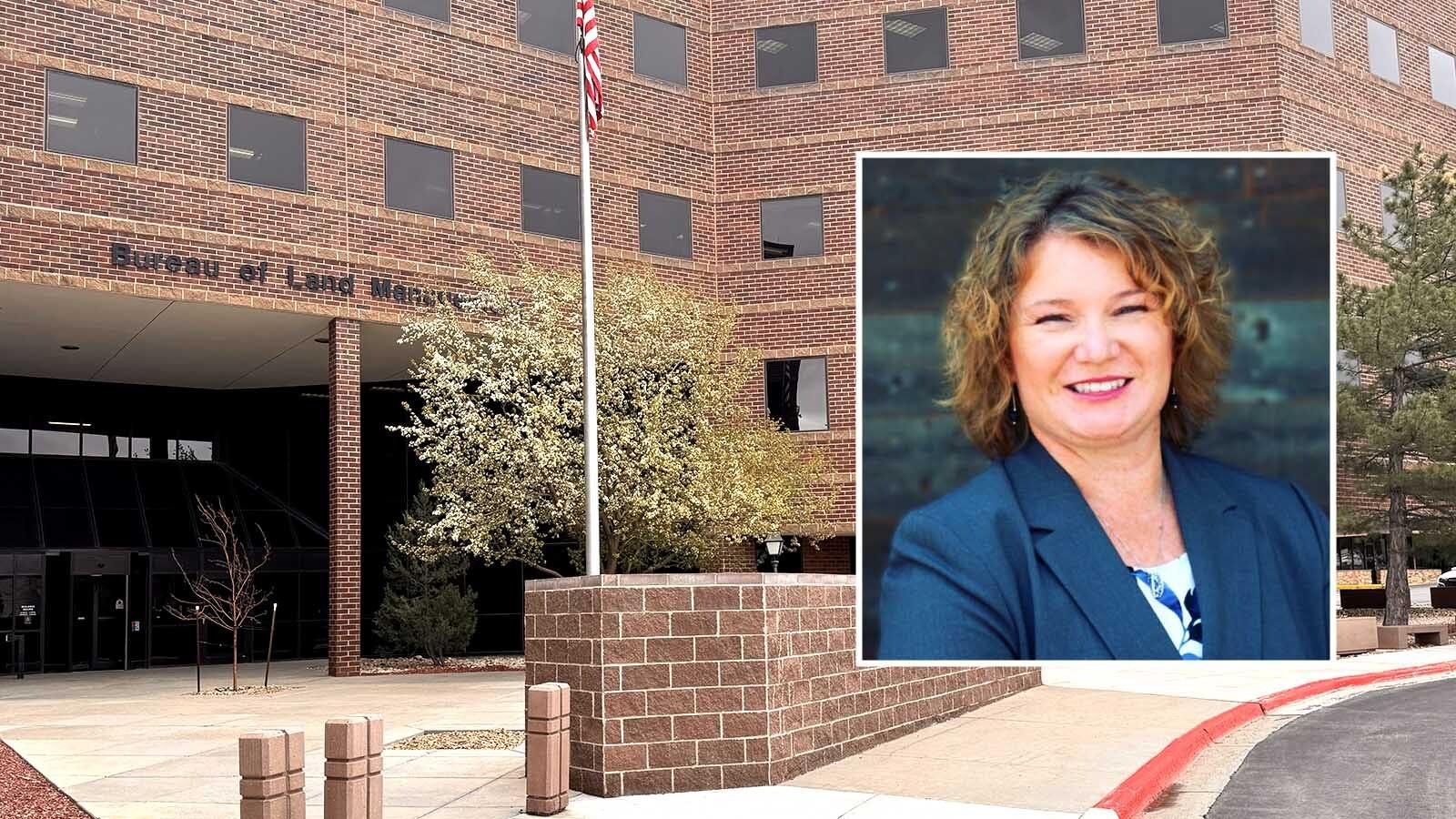A mother whose weeks-old baby had methamphetamine in her system and sores on her neck will not regain the legal right to be that baby’s mother, the Wyoming Supreme Court ruled Friday.
Robin Allyssa Caroline Alcorn was sober in the days leading up to her parental rights termination trial, but it was too little too late, according to the high court’s opinion.
Alcorn petitioned the Wyoming Supreme Court to overturn the Sheridan County District Court’s Feb. 17, 2022, decision to revoke her parental rights over her young daughter.
Alcorn had said that the Wyoming Department of Family Services did not try hard enough to rehabilitate Alcorn and reunite her with her daughter. The Supreme Court disagreed and kept the termination in place.
Baby Tested Positive For Meth
The case started in June 2019 in Sheridan when Alcorn’s daughter was less than a month old.
The infant’s father asked for help from a neighbor because he believed someone with a rifle was trying to kill him, according to the high court’s ruling.
The neighbor called the Sheridan Police Department to perform a welfare check at the family’s home.
During the welfare check, police found drug paraphernalia and marijuana near the place where the baby slept. The paraphernalia tested positive for meth, the ruling states.
“The officers also observed significant open sores on the left side of (the baby’s) neck and her left armpit,” the ruling continues.
Officers arrested both Alcorn and the baby’s father on suspicion of child endangerment.
The ruling says authorities took the baby into protective custody, and she tested positive for methamphetamine. She had torticollis in her neck when she was born and by the time she was about 5 months old had developed several non-cancerous tumors, the document states.
Throughout Alcorn’s case, the ruling says, the baby girl has been diagnosed with asthma, sleep apnea, chronic constipation and significant “limb arousal,” or involuntary limb movements.
Never Visited In Person
Alcorn agreed to have her baby placed in non-relative foster care on June 3, 2019, the ruling states, but she denied DFS allegations that she’d neglected her infant.
DFS soon made a case plan asking Alcorn to address her mental health and substance abuse issues and to learn life stability and parenting skills. The agency established a supervised visitation schedule in Sheridan that allowed Alcorn to visit her baby three times a week.
Alcorn attended one visit that July, but after that she “never attended another in-person visit,” the ruling says.
Alcorn has a history of mental health problems, substance abuse and what the ruling calls “an abusive relationship” with the baby’s father, though it doesn’t say which party is abusive.
Chance For Probation
Keeping meth near a child is a felony in Wyoming.
But the court gave Alcorn a shot at a hybrid sentence of jail and probation: 270 days in jail followed by three years of supervised probation. The court also ordered her to complete residential substance abuse treatment, have no contact with the baby’s father and comply with the DFS plan for treatment and parent coaching, the ruling says.
Alcorn attended treatment while in jail, but quickly relapsed and got together with the baby’s father when she got out of jail in April 2020, the document says.
Several days later she admitted herself to the Wyoming Behavioral Institute, she told her probation officer. She competed an intensive-outpatient treatment program in July 2020 and had both a job and a home at that time in Casper.
DFS let her have 15-minute supervised video visits with the baby, who remained in foster care in Sheridan.
Alcorn attended the video visits “sporadically” and by November 2020, DFS quit offering the visits, the ruling says.
“(She) missed several (visits) due to oversleeping, attending court proceedings, forgetting or generally failing to show up,” says the ruling.
Alcorn had been evicted in October 2020 for failing to pay rent. The ruling says she told her probation officer she had used meth several times that fall, according to the ruling. She also wouldn’t tell DFS where she was living.
A New Baby In Prison
In December 2020, the court determined that Alcorn was still a health and safety threat to her baby “even after receiving extensive services from DFS,” the ruling says.
The court told DFS it no longer had to try reunifying Alcorn with her baby and could seek adoption for the child instead.
Alcorn in April 2021 was arrested for violating her probation and was sentenced to between three and five years in prison for the original child endangerment charge.
Alcorn gave birth to another baby that July while in prison at the Wyoming Medium Correctional Institution in Torrington.
DFS Tried, Court Says
The court held a one-day bench trial Feb. 17, 2022, where DFS asked the court to terminate Alcorn’s parental rights and Alcorn offered evidence in her own defense, the ruling states.
One month later, the court terminated Alcorn’s right to her daughter based on “clear and convincing evidence” that Alcorn had been abusive and/or neglectful, had failed DFS’ attempts to rehabilitate her and was a safety risk to her daughter.
Alcorn disputed the termination in her Supreme Court appeal, saying DFS didn’t try hard enough to rehabilitate her.
But the high court pointed to the DFS case plan efforts and Alcorn’s failure to abide by them in upholding the termination.
On The Eve Of Trial
The Supreme Court’s ruling acknowledges that Alcorn was sober in the days leading up to her termination trial.
“We genuinely hope she can improve her circumstances long term,” says the ruling. “However, her status on the eve of trial does not change the fact she made no meaningful progress on her case plan throughout this case.”
The ruling says that the baby was in non-relative foster care for more than two-and-a-half years by the date of the termination hearing: “essentially her entire life.”
“When the rights of a parent and the rights of a child are on a collision course, the rights of the parent must yield,” the high court added, citing prior case law. “While parents have a fundamental right to raise their children, children have a right to stability and permanency in their family relationships.”





